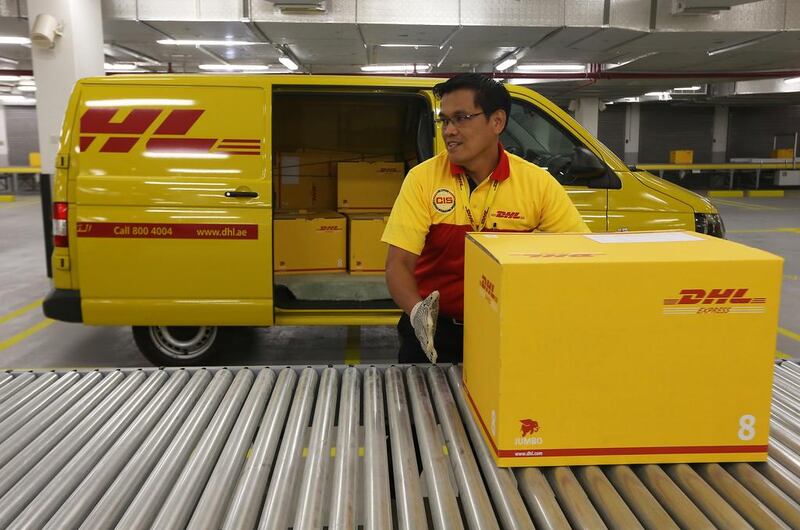The global logistics firm DHL has invested Dh100 million in a new Dubai facility the size of two-and-a-half football pitches as it banks on rapid growth in the region, fuelled by demand from the rising number of small and medium businesses.
The need for the new 186,000 square foot hub – unveiled at Meydan yesterday – has been driven by growth in the SME sector, the lack of available space at Dubai International Airport and the rebound in business confidence in the country, DHL said.
"We are consolidating three ground operation facilities and two office facilities, freeing up space in the airport which we need badly," said Nour Suliman, the chief executive of DHL Express Middle East and North Africa. "That will see about €11 million [Dh55.03m] invested there. We have seen strong double-digit growth for the past four years, with extremely strong growth in the SME segment. When it comes to the multinationals the growth is not as strong. We are healthy, but the SME sector has jumped massively,"
Situated between Dubai’s two airports, the new head office and logistics centre features a 300-metre long conveyor and sorting belt and offers more than 10 times the space that was previously available. The added capacity will help DHL to compete with Aramex, FedEx and UPS. Recently UPS added Dubai to its handful of global hubs linking the US, Europe, Middle East and Africa.
“This is the fastest-growing region in the world, not just from trans-shipment but pure commercial business on the ground,” said Ken Allen, the chief executive of DHL Global. “Globally our business has grown 8 per cent in Q1. We held back somewhat in 2009-10, with regard to investment, and we are on a bit of a catch-up. Nobody realised the bounce-back in the region would be as strong as it’s been.
“We are gaining from the global business in general: Europe is coming back, the US is strong and that is why we are investing in an airside hub at Egypt’s Cairo airport, which will open in August. In Saudi Arabia we have invested in big facilities in Dahran, Riyadh and Jeddah and we are now sitting in the investment in the UAE.”
Last year Dubai’s economy expanded at the fastest rate in six years, thanks to growth in the retail and manufacturing sectors.
The economy grew to Dh325.7 billion, up from Dh311bn the previous year, data released this week by Dubai Statistics Centre showed. AT Kearney also said this week that retail sales in the UAE grew 5 per cent last year to $66bn.
A landmark law supporting SMEs was passed in the UAE in April, granting Emirati-owned businesses customs duty exemptions and other incentives. Sultan Al Mansouri, the Minister of Economy, said he expects the contribution to GDP by SMEs to increase to 70 per cent by 2020 from 60 per cent currently.
The DHL parent Deutsche Post aims to be the global leader in the parcel delivery business by 2020 thanks to the growth of online retail, expected to double in Europe to around €323bn by 2018 from 2012 levels, according to the market research firm Mintel.
While global air freight dropped 1 per cent last year, Dubai International Airport increased its activity by 3.6 per cent, shifting the fifth largest amount of cargo in the world as the Middle East market continued to power ahead.
Abu Dhabi International Airport cargo volumes soared by 30.3 per cent – the highest increase in the world for the period.
ascott@thenational.ae
Follow us on Twitter @Ind_Insights






